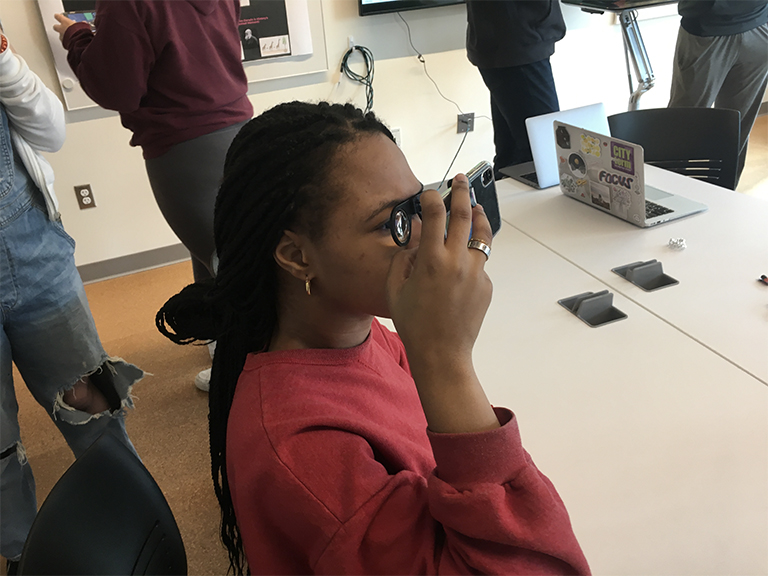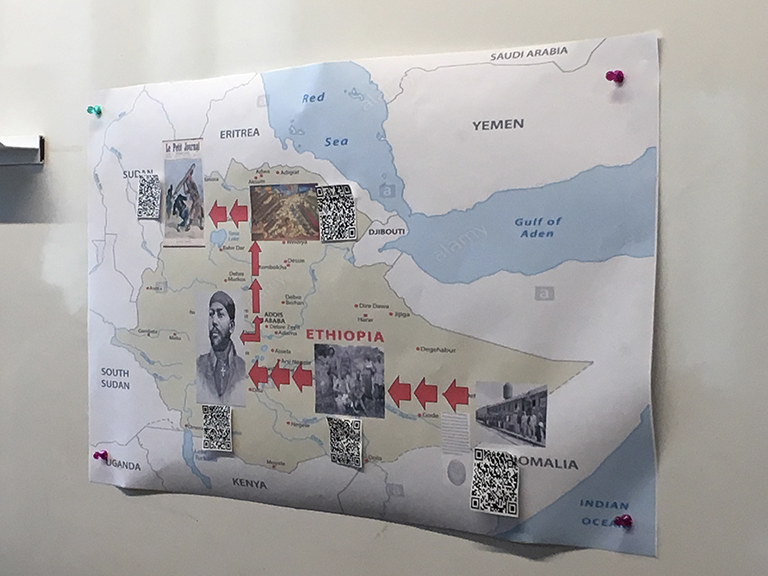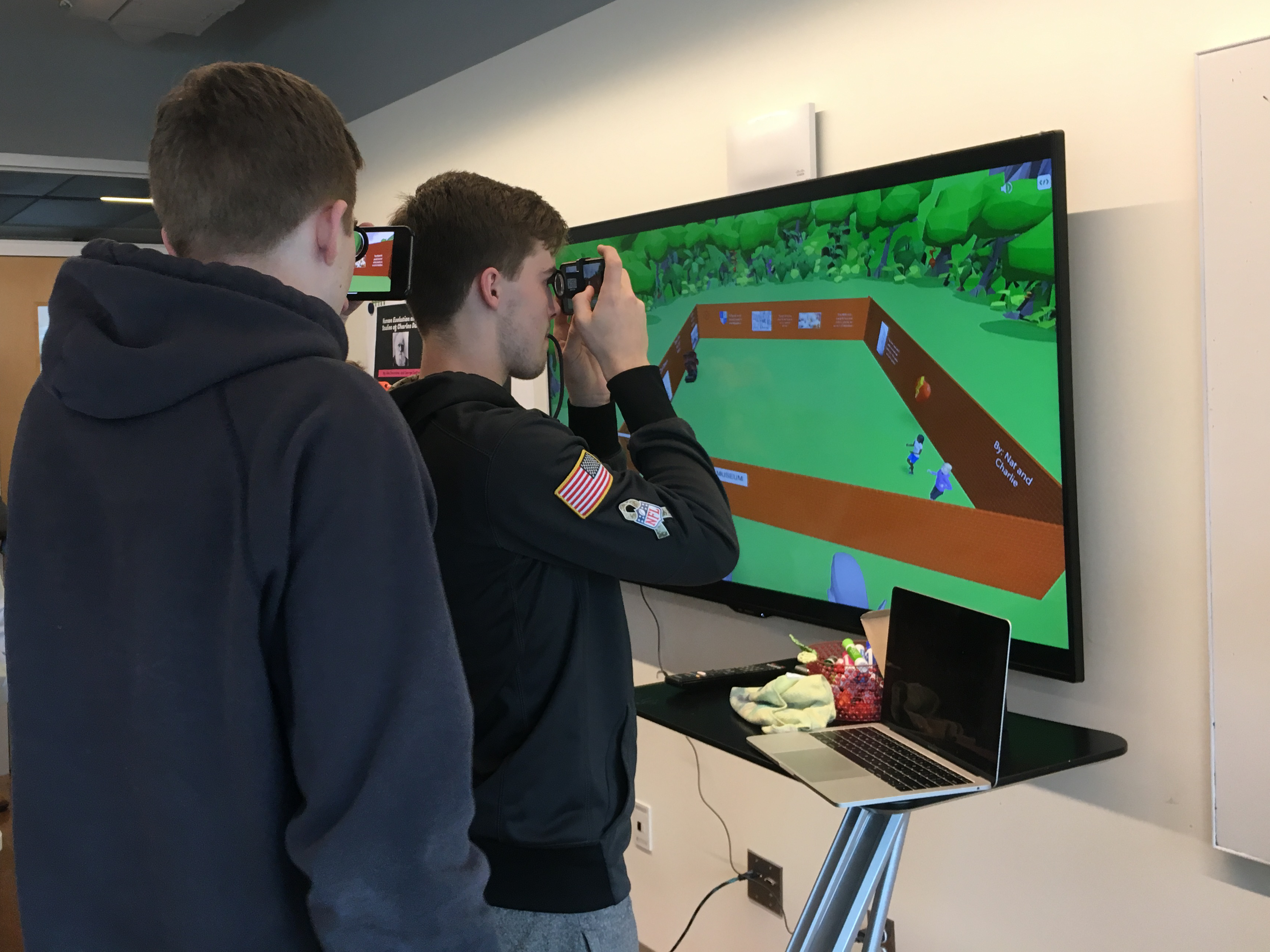Using CoSpaces – a cloud-based virtual and augmented reality building software – juniors worked in groups in history class to create miniature museums that classmates could “enter” with VeeR VR glasses and their phones. These virtual worlds not only demonstrated the students’ knowledge of various resistance movements in Africa but also served as teaching tools for their classmates.

PROJECT EXAMPLES:
- Ben Pratt and Nick Hollingsworth‘s virtual museum about Algerian Independence explored the two wars between France and Algeria. The students said that by doing the research for this project, they learned that conflict still exists between those countries today.
- Natalie Hatton and Charlie Griffin‘s project told the story of the unsuccessful Maji Maji Rebellion. This group said they were surprised at how challenging it was to find information on this topic.
- Another group of students use augmented reality to showcase the Ethiopian resistance under Menelik II, creating QR codes that when scanned opened up on a map. Sequoia Odim-O’Neill and Thierry Edwards said through this project they discovered that the resistance gained the support of other nations, like Russia who helped because they had their own interests in stopping British Colony expansion.

